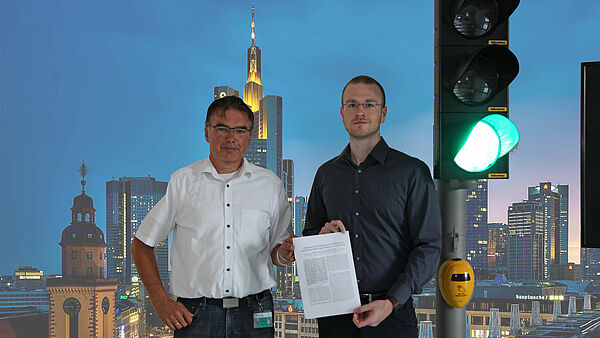A committee of experts selected the paper "Multi-Agent Deep Reinforcement Learning for Real-World Traffic Signal Controls - A Case Study" from the many other contributions submitted. It describes the virtual modeling of a Lemgo road section using existing traffic sensor technology and the adaptation of an artificial intelligence-based smart traffic signal control system optimized by Stanford University in a realistic simulated environment. In total, five student papers were honored out of the more than 120 submitted.
Given the international scientific standing of the conference, there is great joy in Lemgo and Palo Alto. "We are happy that we as Lemgoers were able to internationally inspire with our research work in such an innovative domain and that we complement each other with our American colleagues around Professor Dr. Jie Wang from the Center for Sustainable Development and Global Competitiveness at Stanford through our scientific cooperation," said Professor Dr. Jürgen Jasperneite.
"It is a great award for me and also a great incentive to further pursue my scientific career," says Maxim Friesen, who is now working on his doctoral thesis at inIT of TH OWL in cooperation with Midsweden University.
Authors of the paper are: Maxim Friesen (inIT), Tian Tan (Stanford University), Jürgen Jasperneite (inIT and Fraunhofer IOSB-INA) and Jie Wang (Stanford University).
Accompanying the award is also the announcement for the venue of the next INDIN'2023 conference. The inIT of the Technische Hochschule OWL (TH OWL) and the Fraunhofer Institute in Lemgo were able to convince a selection committee to award the 21st edition of the IEEE INDIN to the town of Lemgo and to hold it there in presence for the first time after three years.


